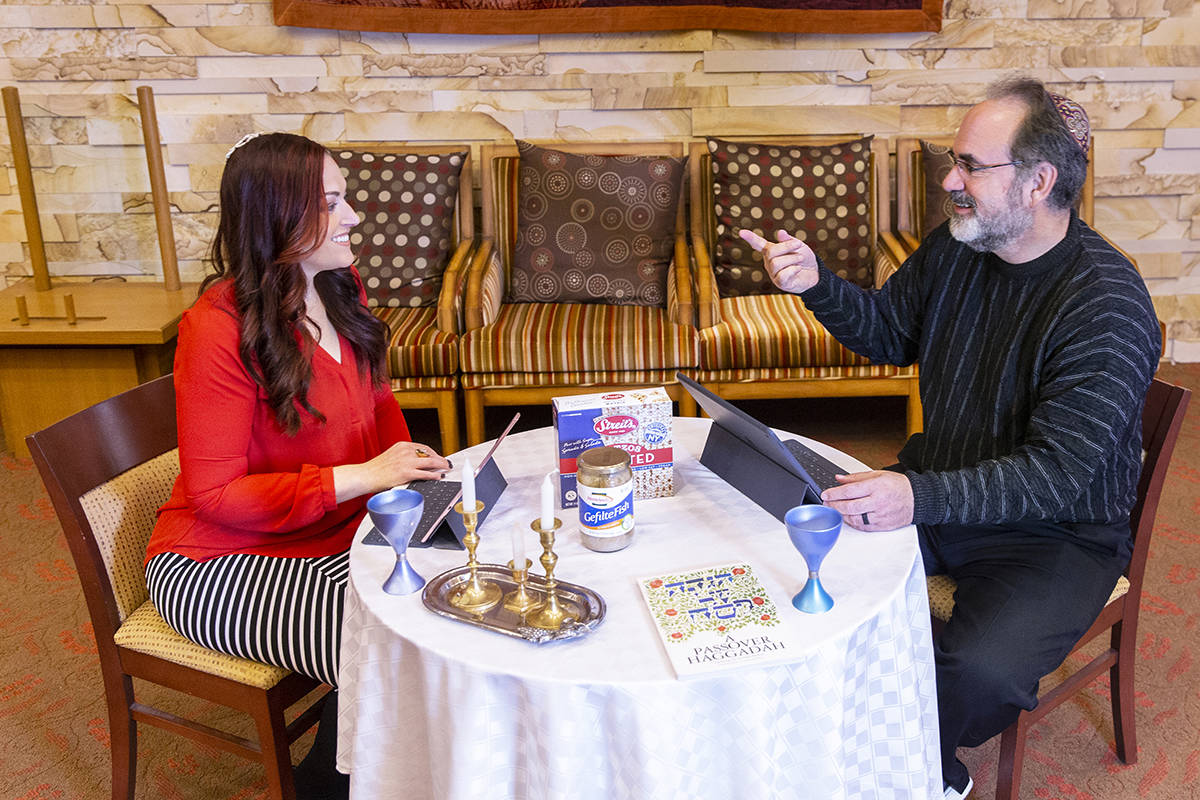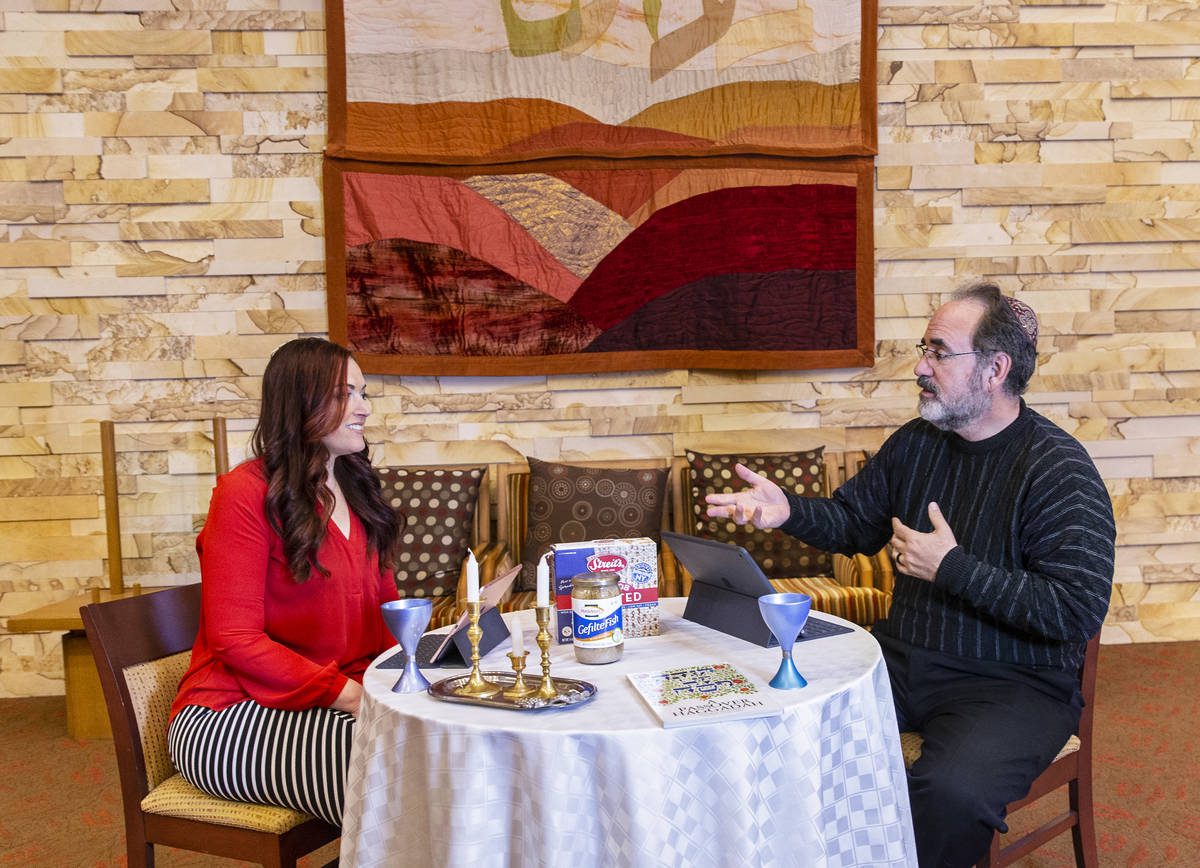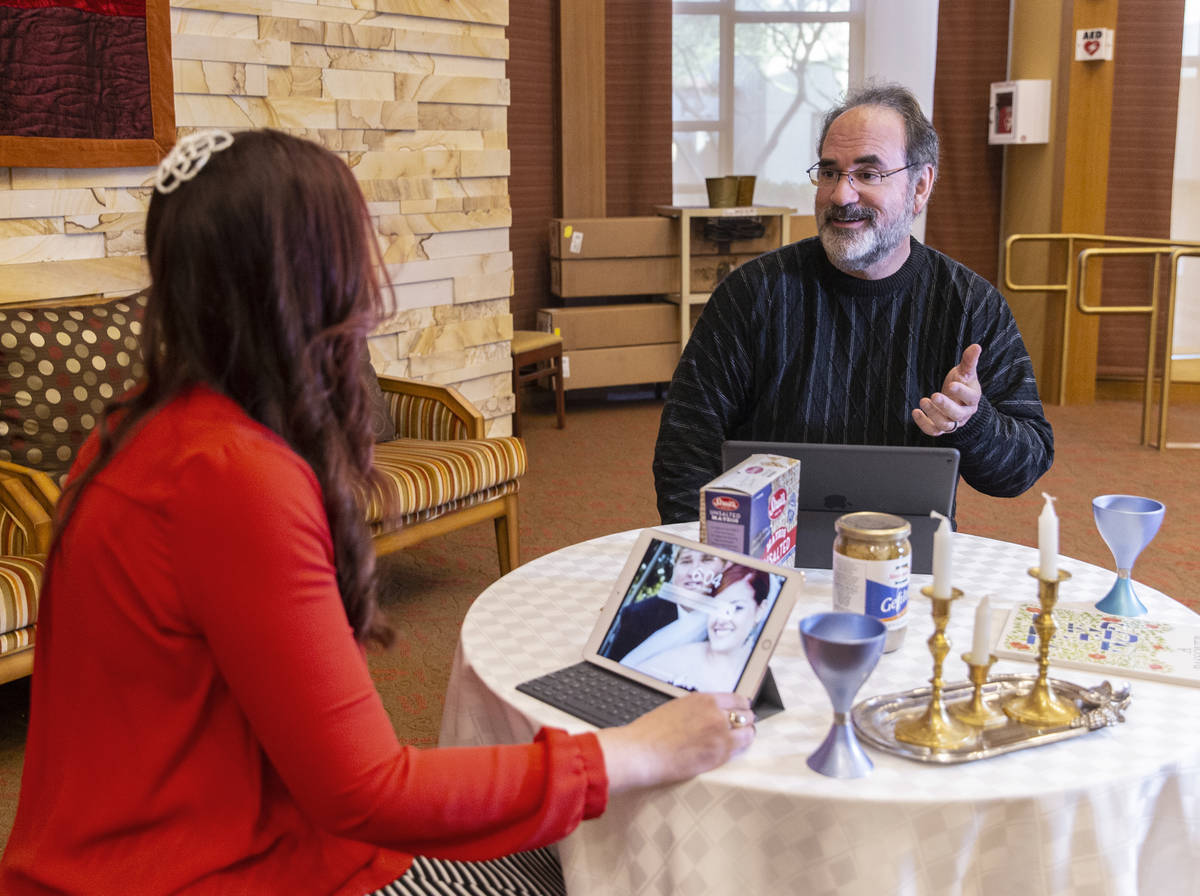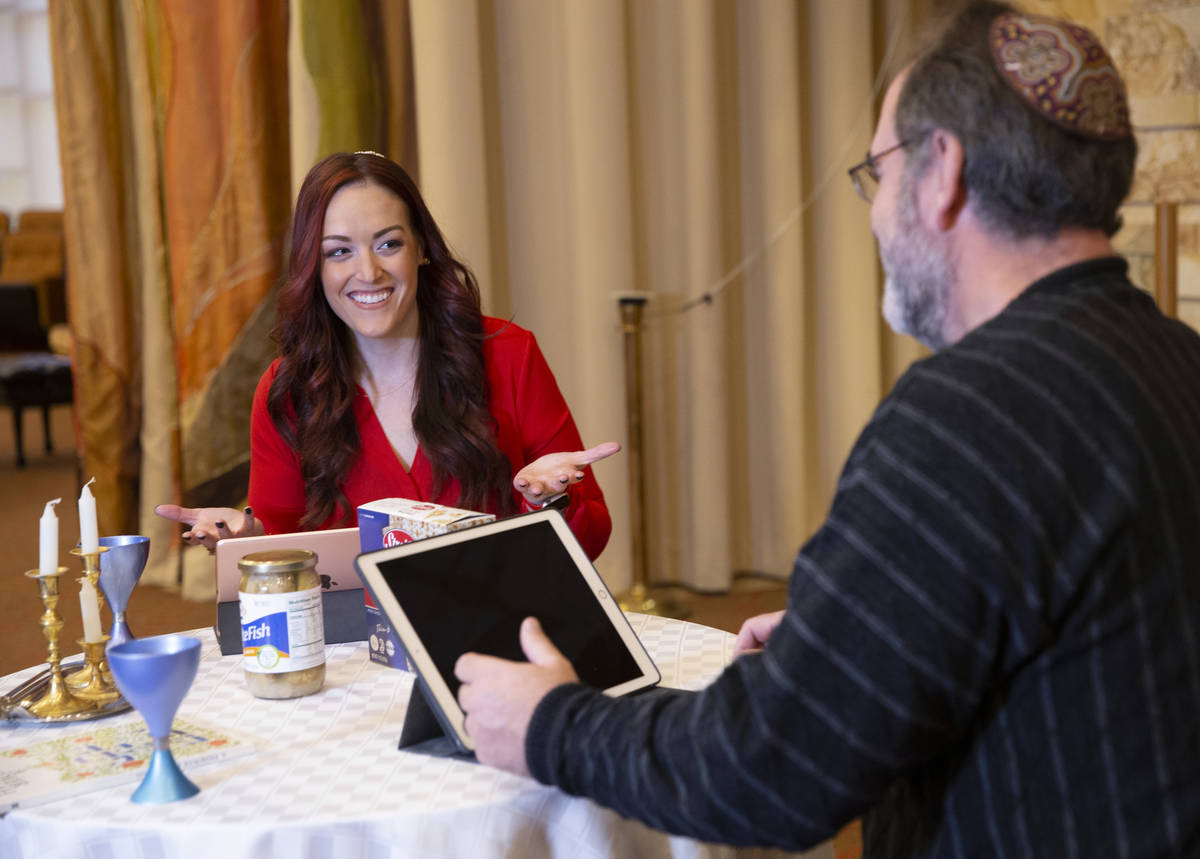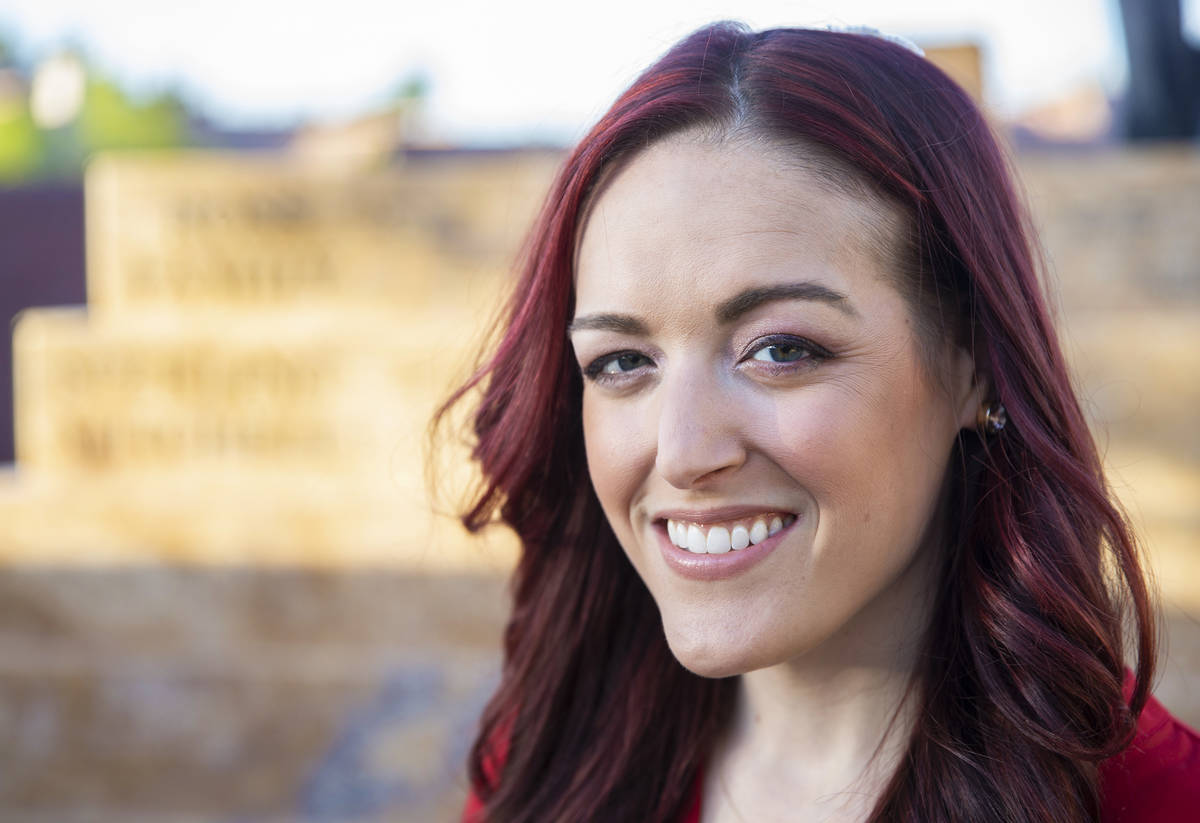Tone, locations of Passover Seders shift amid coronavirus response
A Passover Seder usually is a sociable gathering, with family and friends sharing a meal and retelling the story of the Jewish people’s liberation from slavery.
So it’s ironic that Passover’s story of freedom this year will be retold by Southern Nevadans who will be confined to their homes, separated by social distancing and stay-at-home practices aimed at reducing transmission of the novel coronavirus.
However, area synagogues are doing what they can to keep the more social side of Passover alive through Seder-to-go meal packages and small Seders made slightly larger through Zoom and livestreaming.
Passover this year begins Wednesday evening and ends the evening of April 16.
“Of all of the Jewish observances, Passover is No. 1 in the United States,” said Rabbi Sanford Akselrad of Congregation Ner Tamid. “Three out of every four Jewish homes observe Passover — more than Yom Kippur, more than Shabbat, more than anything else.”
That’s because Passover is “the origin story of the Jewish people, about how we were slaves and now we are free and … how we became a people, instead of a nomadic tribe,” Akselrad said.
That story is retold on Passover through the Seder, a ritual meal with readings, commentary, questions asked and answered, and songs and activities shared among family and friends.
“Usually, my wife will have 30 to 40 people in our home,” Akselrad said. “It’s also a time when non-Jewish families will be invited in by Jewish families, because it’s a great way to extend hospitality and share with them.”
Passover also is celebrated through community Seders. Rabbi Shea Harlig of Chabad of Southern Nevada said the Seder there typically is attended by about 250 people, both locals and tourists.
In addition to the sheer power of the story, the popularity of the Passover Seder stems from “that social element,” said Rabbi Malcolm Cohen of Temple Sinai.
“The strange thing now is, we’re socially isolating, even though this is a story of freedom,” Cohen said, which certainly will change the tone of this year’s observance.
But, Cohen added, Americans often hold dear “the idea of individual freedom,” Cohen said. “Almost unbridled freedom is to be lauded, where, if you look at the original story, it’s about freedom to serve a greater cause, not just freedom to do what you want to do.”
So, Cohen said, this year’s Passover Seder might involve the theme of how “we should be choosing distance from people, thereby limiting our freedom superficially but serving a greater good.”
Still, because the Passover Seder is so ingrained in tradition, this year’s celebration might be emotionally difficult, particularly for those who live alone or who are more accustomed to attending large family or community events.
Temple Sinai will be among area synagogues livestreaming the Seder, while Congregation Ner Tamid will also use the Zoom app to offer its first live virtual community Seder with Akselrad and Cantor Jessica Hutchings. Meanwhile, while Chabad won’t have a community Seder, Harlig said Chabad is offering Seder-to-go meal packages to those who aren’t able to prepare their own.
Harlig notes that celebrating an intimate Seder at home recalls the first Passover, when the Israelites were told by God to remain in their homes as the deaths of Egyptians’ first-born sons occurred.
God “wanted us to turn our homes into a sanctuary,” Harlig said.
“We have that opportunity again,” he said, and this year’s message is to “stay at home and keep Passover in the home.”
Contact John Przybys at jprzybys@reviewjournal.com or 702-383-0280. Follow @JJPrzybys on Twitter.



